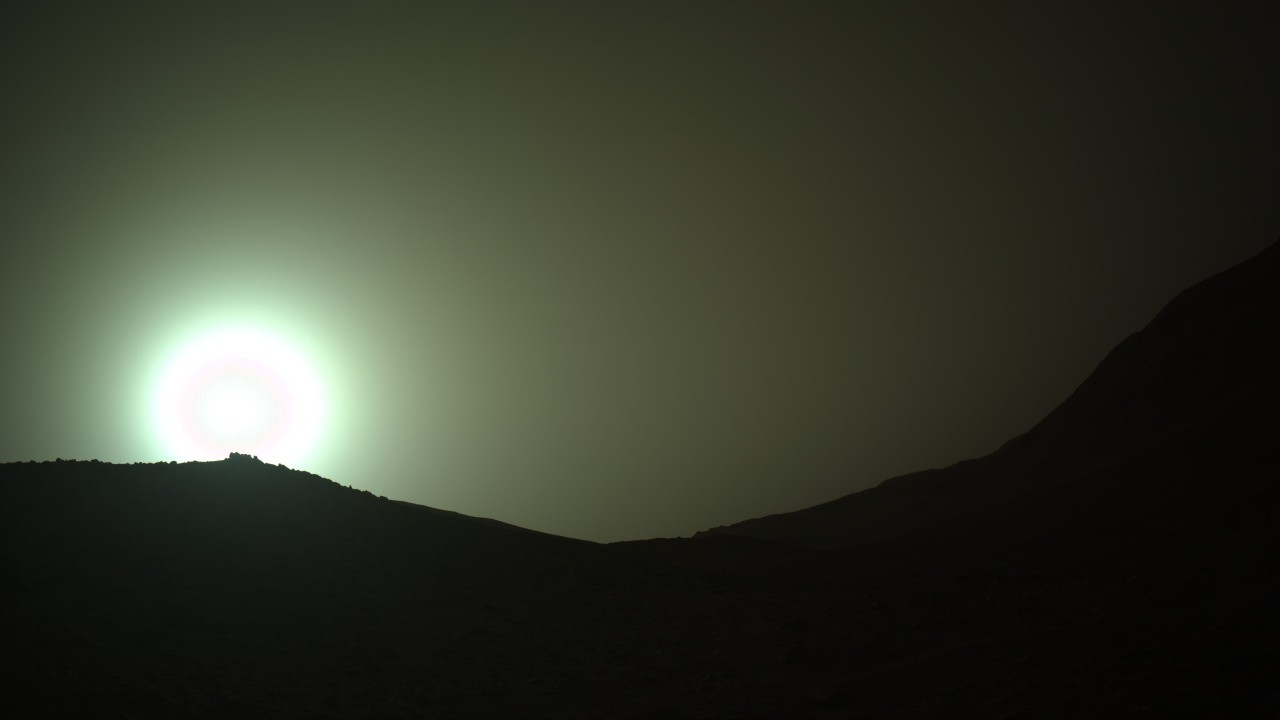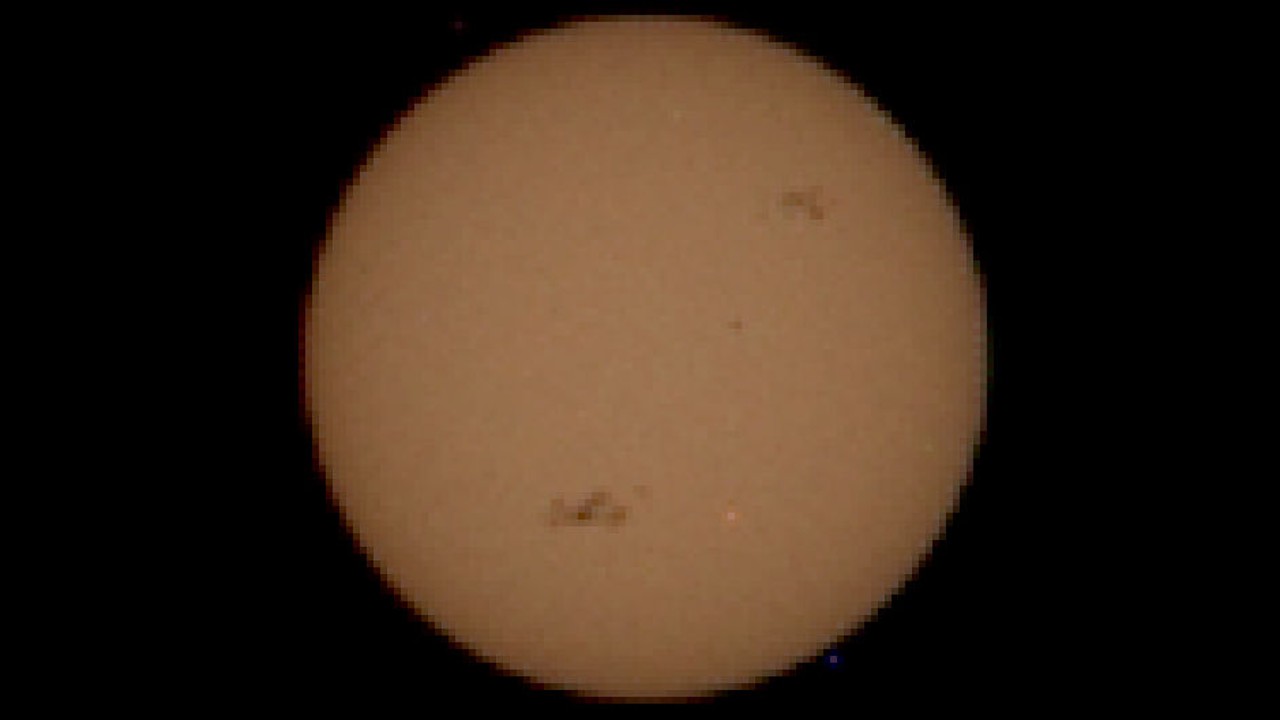Massive sunspot that brought widespread auroras to Earth now targets Mars
After quite the aurora experience across Earth this past weekend, beastly sunspot AR3664 could give Mars quite the same solar spectacular.

Yes, the beastly sunspot AR3664 is in the news again.
Although the sunspot has rotated out of our view, it's still quite the hotspot, having fired off its strongest solar flare yet on Tuesday (May 14). Any bursts of solar plasma and magnetic field, known as coronal mass ejections, erupting from AR3664 will now be directed away from Earth, but scientists say there's another planet that could experience impacts from the massive sunspot: Mars.
"Looking at the measurements of the flare from Mars using the Extreme Ultraviolet Monitor (EUVM) onboard MAVEN, this is by-far the largest flare we've seen since MAVEN arrived at Mars in 2014," Dr. Ed Thiemann, Heliophysicist at the University of Colorado at Boulder's Laboratory for Atmospheric and Space Physics (LASP), told Space.com in an email.
"We haven't looked at MAVEN's atmospheric measurements yet, but based on prior events, we expect the flare rapidly heated and ionized the Martian upper atmosphere, causing the upper atmospheric temperature to perhaps double for a few hours and inflating the entire daylit hemisphere by tens of km."
In fact, NASA's Perseverance Mars rover has a front row seat on the Red Planet with a direct look at the sun with both AR3663 and AR3664 in view. Like Earth, with Mars being in the direct path of the CME, there will be impacts once it arrives as a solar storm is generated and interacts with the Martian atmosphere. And yes, that could mean a global-scale aurora for Perseverance to enjoy.
"The CME launched by the flare is on its way and it may cause global-scale aurora and energize Mars's upper ionosphere and magnetosphere," Thiemann said.
Get the Space.com Newsletter
Breaking space news, the latest updates on rocket launches, skywatching events and more!

However, unlike Earth's atmosphere, Mars does not have a magnetic field to shield it from the supercharged particles. That's why for an event like this, it's important to have MAVEN continue to keep an eye on and study Mars' upper atmosphere.
This wouldn't be the first time MAVEN was treated to a spectacular light show. In August of 2022, auroras were spotted on both the day and night sides of the Red Planet with one of the events created by a solar storm.
And then earlier this year in February, our own NASA astronauts were treated to quite the glow as well from the International Space Station (ISS). Scientists are looking forward to getting data after everything pans out if the CME impacts Mars and what other impacts it might have on the planet.
"Both the flare and the CME are expected to temporarily increase the loss of Mars' atmosphere to space, and we're keenly interested in using MAVEN to measure these really big events because it gives us a window into how the earlier and more active Sun eroded away Mars's once-thick atmosphere creating the cold and arid planet we see today," Thiemann said.
Join our Space Forums to keep talking space on the latest missions, night sky and more! And if you have a news tip, correction or comment, let us know at: community@space.com.

Meredith is a regional Murrow award-winning Certified Broadcast Meteorologist and science/space correspondent. She most recently was a Freelance Meteorologist for NY 1 in New York City & the 19 First Alert Weather Team in Cleveland. A self-described "Rocket Girl," Meredith's personal and professional work has drawn recognition over the last decade, including the inaugural Valparaiso University Alumni Association First Decade Achievement Award, two special reports in News 12's Climate Special "Saving Our Shores" that won a Regional Edward R. Murrow Award, multiple Fair Media Council Folio & Press Club of Long Island awards for meteorology & reporting, and a Long Island Business News & NYC TV Week "40 Under 40" Award.









